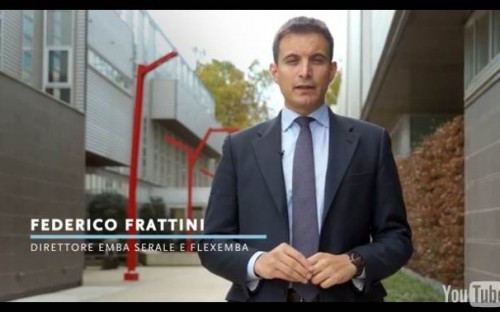MIP Politecnico di Milano have been attracting large numbers of entrepreneurs – among other candidates – for their new Flex EMBA, which has been developed with technology giant Microsoft.
Distance learning - which has taken the form of massive-online open courses (Moocs) and online MBAs - has become increasingly popular in the business school world. Learning from the comfort of your home has proved an attractive proposition, and many b-schools have taken up the trend.
Led by premier institutions in the United States, online learning platforms have been educating future business leaders in great numbers this year. A large number of b-schools have opened MBA courses online – often for free – and the trend has been taken up in Europe.
Many argue that the traditional MBA experience cannot be replicated through a computer screen, and many see the Moocs offered by Wharton and Harvard as marketing gimmicks.
But what makes MIP’s online-based EMBA different is the interactivity – a quality cited as missing in traditional distance learning.
“We realized that there were options to develop a platform which allowed a lot of interaction, communication, discussion and engagement for our students,” says Federico Frattini, the program’s Director.
“Our approach is completely different from standard online learning platforms. They are too distant in terms of the ease with which students can engage with each other and faculty.
“Traditional distance learning is just a one-way process. They are normally content replicators. We believe in peer-to-peer learning and new technology allows us to enable that online.”
When BusinessBecause reported the rise of online MBAs last month, David Simmons, Executive Director of the full-time MBA at Cranfield University, made the same point: “They may be watching the same lectures, but it’s not the same experience. I don’t think we’ve reached a point where face-to-face interactions can be replaced by online experience.”
But technology is ever-evolving and MIP’s new program has been developed with the help of Microsoft. The unique online platform will allow you to participate in live discussion, moderated by MIP professors, instead viewing pre-recorded lectures.
“The new platform will allow students to interact with peers and faculty without going outside the digital environment,” continues Federico. “It will use a tailored version of Microsoft Lync, similar to Skype, which is compatible with any device.”
A good MBA program will not just give students a great business education, but excellent networking opportunities, a strong alumni network and a dedicated careers team.
And while Executive courses are mostly for those already in careers, some will want to develop future job connections. MIP’s online-based program will connect students with around 15 top executives, through the “adjunct faculty”.
“We are building a faculty made of top executives from international firms,” says Federico. “They will join the faculty of the MBA and other companies, to interact with students and share their knowledge.
“We will have executives from the Boston Consulting Group, Procter & Gamble and Microsoft Italia, among others.”
About 20 per cent of the course will still be taught at MIP’s campuses, primarily focusing on soft skills and leadership development. It is also credited by The Ministry of Education in Italy – a difficult feat to achieve for online-based programs.
Flex EMBA students will also meet again in person, along with the in-house MBA students, in the final few months of the program to complete elective courses.
Networking opportunities will be aplenty. “You will still be able to create networks and in traditional format,” Federico says, “and this is boosted by face-to-face interactions with students on the other MBA programs.”
Traditional Executive MBAs are often the reserve of industry veterans, employed by leading companies and hoping to advance their careers. But when Federico spoke to other leading b-schools with online courses, he noticed that their cohorts were becoming increasingly younger.
The Flex EMBA has so far proved popular among entrepreneurs. “Our program is critical for those people that have less time, such as entrepreneurs and people from start-ups or SMEs,” he says.
“Entrepreneurs usually have barriers to doing traditional EMBAs, because for them time is critical; they cannot leave their start-up for a prolonged period.
“But our course is not just for entrepreneurs. We have interest among a wide range of candidates.”
Online-based MBAs can be a great resource for those seeking to advance their careers while juggling busy lifestyles. And MIP’s slightly longer course, which can be completed in 18-months or up to a maximum of three years, offers more flexibility.
“A lot of our students spoke about the need for flexibility. They have increasing travel demands and it can be a real challenge to attend the traditional face-to-face classes,” says Federico.
“More and more students want to be able to continue doing their job without taking so many days out of their agenda. Our new EMBA offers much more flexibility.
“You can choose the exact months and years that you want to follow the course. You develop your own schedule, your own personalized content of scheduled learning. This is a real advantage.”
An MBA for the busy entrepreneur and the experienced executive: it is a rare combination.
There is still debate about whether online MBAs can replicate traditional face-to-face programs, but technology has allowed MIP to merge the best of both.
There is no longer a lack of interactivity in online MBAs and Moocs.
They have taken distance learning to the next level.
Student Reviews
Polimi Graduate School of Management
RECAPTHA :
98
94
d3
c1








